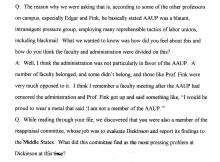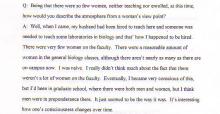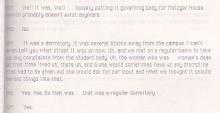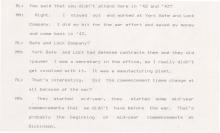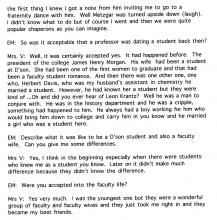Graduate School: An Unthinkable Option
During the peak years of the Second World War it was a common trend that women did not apply to graduate schools even though the majority of the women attended school because they wanted to obtain a career. As explained by Ruth Murphy in her interview, "back then girls didn't apply like now", despite the fact that she, like other women on the Dickinson campus, eagerly wanted to attend gradute or law school after graduation.


